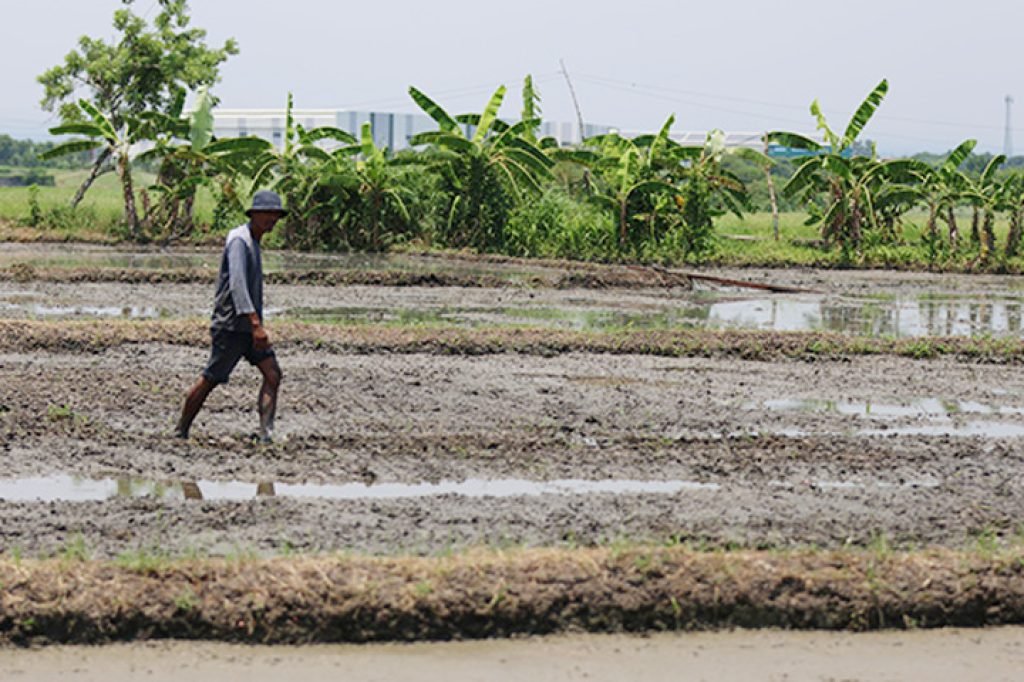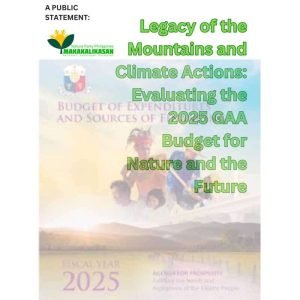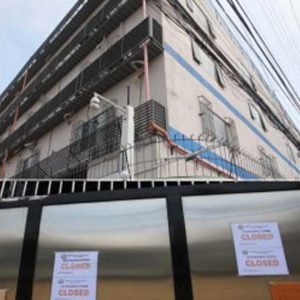
SEVERE weather disturbances brought by climate change are threatening not only agriculture but also government infrastructure projects which could affect the country’s economic performance, according to local economists.
On Thursday, the Philippine Statistics Authority (PSA) said the economy slowed to 5.2 percent, the slowest since the second quarter of 2023. The data also showed government spending for projects slowed to 3.7 percent in the third quarter, lower than the 27.3 percent in third quarter of 2023 and 21.7 percent in the second quarter of 2024.
Socioeconomic Planning Secretary Arsenio M. Balisacan noted that the Philippine Atmospheric, Geophysical and Astronomical Services Administration (Pagasa) forecasts two to eight tropical cyclones from November 2024 to April 2025. Economists said this could disrupt the implementation of key infrastructure projects.
“If these forecasted weather disturbances eventually develop into destructive ones, then, these may challenge growth output in the first half of 2025,” Unionbank Chief Economist Ruben Carlo O. Asuncion told BusinessMirror.
Asuncion said past tropical cyclones frequent Philippine shores in July and November. This year the country experienced seven typhoons and monsoon rains which disrupted project implementation, contributing to the slowdown in GDP growth.
Canlas: Threat to growth
Former Socioconomic Planning Secretary Dante Canlas agreed that Pagasa’s forecast will be a threat to the country’s economic growth. He said the level of destruction was observed through the recent typhoons which significantly affected roads, bridges, and ports, among others.
“The need to ‘build up better’ following destruction of the existing infrastructure system impinges on the tight fiscal space faced by the government. The country needs, for example, typhoon-resistant school buildings & hospitals,” Canlas told BusinessMirror.
Ateneo de Manila University economist Leonardo Lanzona Jr. said this is why the government cannoy rely on just public infrastructure spending to boost the country’s economic growth.
The unfortunate end that this could lead to, Lanzona said, is increased loans and or more taxes, which is largely unpopular and something that the government wants to avoid.
“More importantly, funds for flood control projects should be categorized differently from other expenditures to guarantee consistent allocation, since these projects should have been prioritized. Apart from financial costs that these delays will cause, production will be destroyed as a result of the typhoons,” Lanzona told this newspaper.
For De La Salle University economist Maria Ella Oplas, the government should improve project management in order to prevent the significant impact on the country’s economic growth.
Oplas told BusinessMirror project management efforts should be evidence-based and that climate change should be covered in disaster reduction management.
She said the national government should also double-time on their construction activities when the weather is favorable.
Ateneo Center for Economic Research and Development Associate Director Ser Peña-Reyes said the national government must be proactive rather than reactive when it comes to infrastructure projects.
Peña-Reyes said the government must also be more cognizant of its spending, particularly for infrastructure. The government cannot afford to spend funds for the sake of pump-priming the economy.
He stressed that projects should have a significant impact on the economy or alleviate everyday concerns of Filipinos such as those that address bad roads, among others.
“We must aggressively push for the sustained implementation of our infrastructure drive, ensuring that we provide adequate fiscal support to our flagship projects and expedite the processes necessary for the timely rollout of public and private investments,” Socioeconomic Planning Secretary Arsenio M. Balisacan, however, said.
“In this regard, it is imperative that we intensify our efforts to improve the ease of doing business and elevate our competitiveness to further strengthen investor interest and confidence,” he added.
Third-quarter performance
The growth of the economy slowed to 5.2 percent, according to the Philippine Statistics Authority (PSA).
This is slower than the 6.4-percent growth in the second quarter and the 6-percent growth recorded in the third quarter of last year.
This is the slowest growth of the Philippine economy since the 4.3 percent growth posted in the second quarter last year.
Balisacan said this placed the country’s GDP growth at 5.8 percent in the first three quarters of 2024. This is “slightly below” the government’s full year target of 6 percent this year.
He said the economy needs to grow by 6.5 percent to attain the government’s targets this year. But the government is confident that holiday spending, among others, will help boost the country’s economic performance.
“The economy needs to grow by at least 6.5 percent to meet the government’s target for the last quarter 2024. We remain optimistic that this growth target is attainable,” Balisacan said.
“We anticipate increases in holiday spending, more stable commodity prices (given low inflation), lower interest rates, and a robust labor market. In the areas affected by typhoons, recovery efforts will drive economic activity and, hopefully, build back better,” he added.
Among the major economic sectors, Industry and Services posted year-on-year growths in the third quarter of 2024 with 5 percent and 6.3 percent, respectively. Meanwhile, the Agriculture, forestry, and fishing sector posted a year-on-year decline of 2.8 percent.
On the demand side, Household Final Consumption Expenditure was the top contributor to the increase in the country’s GDP, which grew year-on-year by 5.1 percent in the third quarter of 2024.
The following items also recorded year-on-year growths: Government Final Consumption Expenditure, 5 percent; Gross capital formation, 13.1 percent; and Imports of goods and services, 6.4 percent.
Meanwhile, exports of goods and services recorded a year-on-year decline of 1 percent.
Image credits: Nonie Reyes







